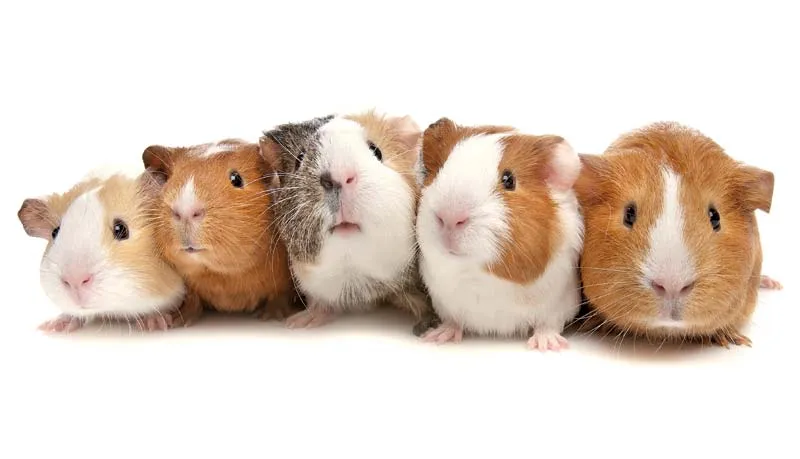
Guinea pigs make great pets for children. They’re small, easy to handle, and don’t bite when being picked up.
Feeding:
Your guinea pigs are herbivores, which means they only eat plant material.
Grass hay should be the high-fiber cornerstone of every guinea pig’s diet. The fiber in hay helps meet the important dental and digestive health needs of herbivores such as guinea pigs. A daily recommended amount of a uniform, fortified food provides essential vitamins and minerals not found in hay. Fresh greens are also an important component of a guinea pig’s diet, and healthy treats can be beneficial when given in moderation.
So-called ‘muesli mixes’, consisting of lucerne chaff and pellets, grain, and molasses do not meet your guinea pigs’ dietary and health needs, and should never be fed to guinea pigs (or rabbits).
Guinea pig foods:
- Guinea pig mix
- Bran Mash
- Broccoli
Handling:
Their quiet and timid nature and friendly disposition make guinea pigs easy to handle. Most guinea pigs will approach a hand introduced into their cage and can be easily picked up. Guinea pigs not accustomed to being handled may jump and run, but rarely turn aggressive.
Once picked up, the guinea pig can be restrained by one hand. They are likely to struggle when held on their back or manipulated. Be gentle but firm when handling and provide support for their legs – they feel threatened if not on stable ground.
Almost all guinea pigs dislike any form of restraint or minor procedure and will often vocalize loudly with squeals & screams! Remember, there is little discomfort occurring if the guinea pig is handled correctly, even though the squeals suggest otherwise! This article discusses ways that you can handle your guinea pig without hurting or excessively distressing them and with minimal damage to the human-guinea pig bond that is so important to the trust between you.
Grooming:
Many guinea pig owners like to groom their guinea pigs, i.e., trim their nails, brush their coat. This has to be done carefully, as your guinea pigs may be injured if the correct techniques are not used. Often these procedures are best done by a veterinarian experienced with guinea pigs.